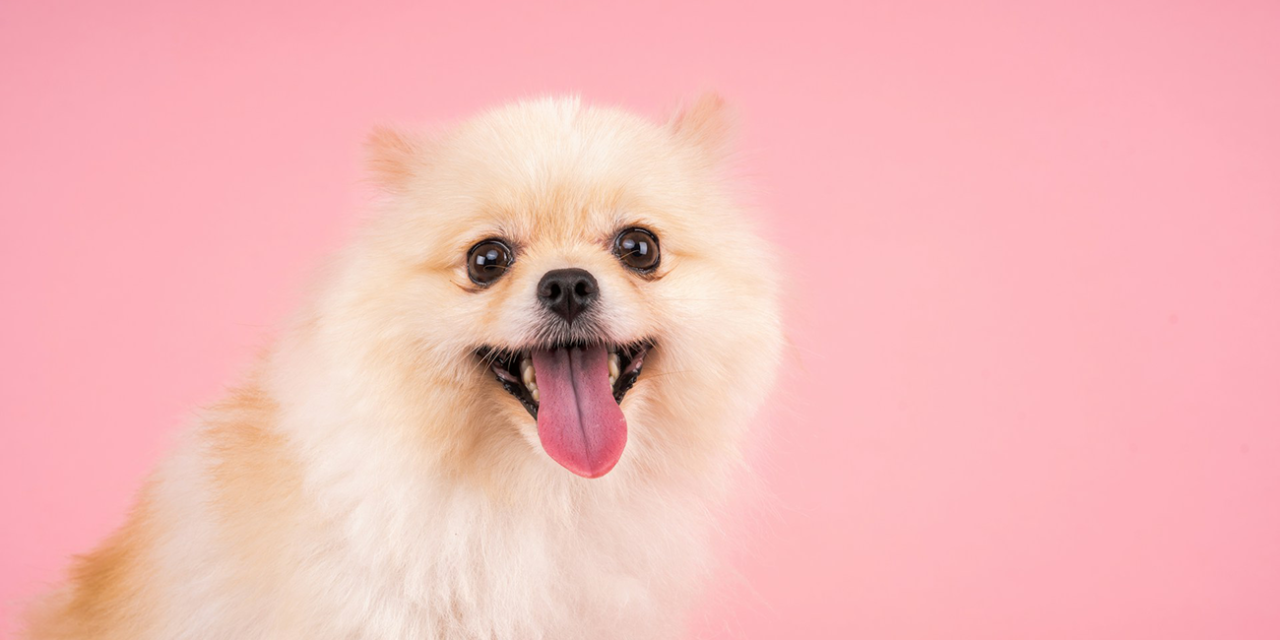As a proud owner of a Pomeranian/Sheltie mix named Turtle Dove, I’ve developed a deep affection for these fluffy little canines.
Turtle Dove’s endearing nature and experience in dog sledding and caring for dogs have made me passionate about learning more about Pomeranians and sharing their fascinating history and care tips.
Let’s jump into the world of these adorable furballs!
Table of Contents
A Royal Lineage: The History of Pomeranians
Pomeranians, affectionately nicknamed “Poms,” have an exciting and regal history.
Originating from the Pomerania region (now modern-day Germany and Poland), these dogs were initially larger and used as herding and sled dogs. They are descendants of the ancient Spitz family, which includes breeds like the Samoyed, Alaskan Malamute, and Norwegian Elkhound.
Queen Victoria’s Influence
The breed gained popularity in the 19th century, thanks to Queen Victoria of England.
During a visit to Italy, Queen Victoria fell in love with these charming dogs. Her fascination led to the breeding of smaller-sized Pomeranians. She established a breeding kennel for Pomeranians, significantly impacting the breed’s development.
Caring for Your Pomeranian
Pomeranians are intelligent, affectionate, and energetic companions. However, they require specific care to ensure their well-being. Here are some essential aspects to consider when caring for your Pom.
Grooming
Pomeranians have a super thick, fluffy double coat that needs regular grooming.
You must brush their fur at least once a week to prevent matting and remove loose hair. Remember to trim their nails, clean their ears, and brush their teeth regularly to maintain their overall health.
Exercise and Mental Stimulation
Although small in size, Pomeranians are energetic and require daily exercise.
A brisk walk or a play session in the yard will keep them happy and healthy. Providing mental stimulation through puzzle toys or training sessions helps keep your Pom engaged and prevents boredom.
Training and Socialization
Pomeranians are intelligent and eager to learn, making them relatively easy to train.
Start training and socializing your Pom early to prevent behavioral issues like excessive barking or aggression. Use positive reinforcement techniques, like treats and praise, to encourage good behavior.
Feeding
Feed your Pomeranian a high-quality, balanced diet suitable for their size, age, and activity level.
Be mindful of their calorie intake, as these small dogs can be prone to obesity. Also, be cautious when offering treats, as some Pomeranians have a sweet tooth – just like my Turtle Dove and his love for gummy treats! Dog gummies, of course.
Health
Pomeranians are generally healthy but prone to specific health issues like patellar luxation, hypothyroidism, and dental problems.
Regular veterinary check-ups and preventive care will help ensure your Pom stays healthy and happy.
Cherish Your Fluffy Companion
You can’t deny the charm and appeal of Pomeranians.
From their fascinating royal history to their unique personalities, they have captured the hearts of many, including my own. Understanding their history and providing proper care can ensure your fluffy companion a happy and fulfilling life.
Share Your Experiences
What’s your experience with Pomeranians? Do you have any additional care tips or fun stories to share?
I’d love to hear from other Pomeranian owners and enthusiasts. Sharing our experiences can help us all provide the best care for these adorable dogs.
Q&A: All About Pomeranians
Q: How often should you groom a Pomeranian?
A: Pomeranians require grooming at least once a week to prevent matting and keep their coat healthy. Regular grooming sessions should include brushing their fur, trimming their nails, cleaning their ears, and brushing their teeth.
Q: What type of diet is best for a Pomeranian?
A: A high-quality, balanced diet suitable for their size, age, and activity level is essential for Pomeranians. Be mindful of their calorie intake and avoid overfeeding to prevent obesity.
Q: How much exercise does a Pomeranian need?
A: Despite their small size, Pomeranians need daily exercise to stay healthy and happy. A brisk walk or a play session in the yard will suffice, along with mental stimulation through puzzle toys or training sessions.
Q: Are Pomeranians easy to train?
A: Yes, Pomeranians are intelligent and eager to learn, making them relatively easy to train. Start training and socializing your Pom early, using positive reinforcement techniques like treats and praise to encourage good behavior.
Q: What common health issues do Pomeranians face?
A: Pomeranians are prone to specific health issues like patellar luxation, hypothyroidism, and dental problems. Regular veterinary check-ups and preventive care can help manage these conditions and ensure your Pom stays healthy.
Q: How can I prevent my Pomeranian from barking excessively?
A: Early training and socialization are key to preventing excessive barking in Pomeranians. Use positive reinforcement to encourage quiet behavior and provide mental and physical stimulation to keep them engaged.
Q: What is the best way to socialize a Pomeranian?
A: Start socializing your Pomeranian early by exposing them to different people, places, and situations. Positive experiences during their formative months will help them grow into well-adjusted adults.
Q: How do I know if my Pomeranian is getting enough mental stimulation?
A: A well-stimulated Pomeranian will be less likely to exhibit behavioral issues like chewing or excessive barking. Provide puzzle toys, training sessions, and interactive play to keep their minds engaged.
Q: Can Pomeranians get along with other pets?
A: Yes, with proper socialization, Pomeranians can get along well with other pets. Introduce them to other animals gradually and ensure positive interactions to foster good relationships.
Q: What should I do if my Pomeranian shows signs of a health problem?
A: If your Pomeranian shows signs of a health problem, such as limping, lethargy, or changes in appetite, consult your veterinarian immediately. Early detection and treatment can prevent more serious issues and keep your Pom healthy.
By following these tips and understanding their unique needs, you can ensure your Pomeranian lives a long, happy, and healthy life.





